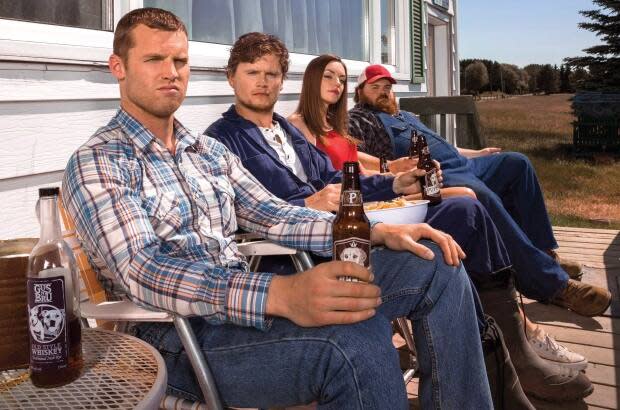Why Schitt's Creek and Letterkenny are being called 'love letters to rural Canada'
When the Emmy nominations started rolling in for Schitt's Creek's final season last month, it sparked a conversation among Ashleigh Weeden and a couple of research colleagues about the importance of telling rural stories.
Weeden, a PhD candidate in rural studies at the University of Guelph, also thought about Letterkenny, another Canadian television show set in rural Ontario.
Last week, she and her two colleagues wrote an article in The Conservation, a publication which features articles by the academic and research community, calling the shows "love letters to rural Canada"
"The reason Schitt's Creek and Letterkenny make such interesting comparisons is that each show dances between winking at itself versus making rural places the butt of the joke," Weeden and her colleagues wrote.
They describe the writing as nuanced and smart, piercing through common stereotypes of small-town dwellers.
"You have these archetypes of characters, but through the arcs of the storyline, you see them as complex, whole human beings, that are more than just whatever that stereotype might be," said Weeden.
'Pay respect for small towns'
In an interview with CBC News earlier this year, Dan Levy, the co-creator and star of Schitt's Creek, talked about his desire to pay tribute to small towns in the series.
"I think it started with us not wanting to caricature small towns," said Levy.
"I think when you think of sitcoms, anytime small towns are portrayed, the joke is on them. They're simple people who don't quite understand. And in this scenario we wanted to pay respect for small towns," said Levy.
Weeden is familiar with small-town living. She was born and raised in rural southwestern Ontario. So watching Letterkenny in particular is like a throwback for her.
"I could pinpoint those people. I went to high school to them," Weeden told CBC K-W with a laugh.
"The speech pattern and language use is so familiar, and yet still so over the top. It's funny, you get the augmented reality of your own existence reflected back at you, which is really wonderful to see," said Weeden.
Ultimately, Weeden thinks the more thoughtful and thought provoking stories about rural Canadians that are told on television, the better.
"Interesting things happen outside of Toronto, Montreal and Vancouver and the more chances we do have to tell those stories, the more interested we can and should become in those places, said Weeden.
The researchers plan to expand their opinion piece into either a journal article or book chapter, to fully explore the power of rural storytelling.


